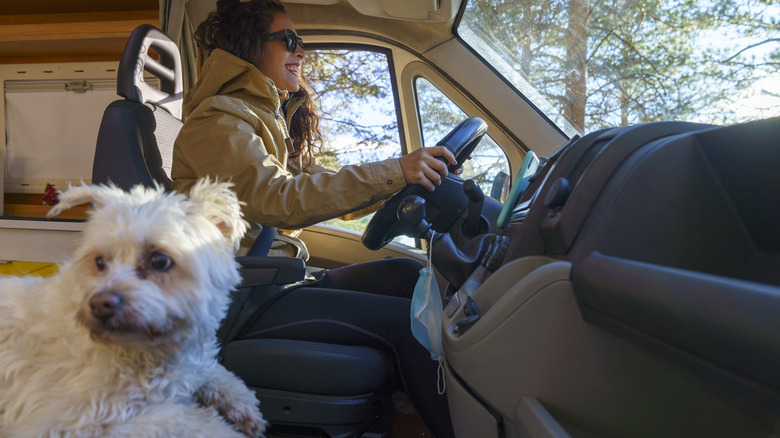Whether you’re traveling solo or heading out with the entire family, planning an RV trip means you’ll get a chance to experience a whole new level of comfort that traditional campsite options can’t replicate. From the luxury of sleeping in a comfortable bed to enjoying access to fully-equipped kitchen facilities, and the peace of mind that comes from knowing you’re more protected from the elements than if you were sleeping in a tent, RV camping delivers a true home-away-from-home experience.
That said, RV travel also comes with its own set of sneaky dangers, challenges, and drawbacks. For starters, costs can add up pretty quickly between the RV purchase or rental, campground hookup fees, and increased fuel consumption. Beyond that, campgrounds that accommodate RVs also often book up months in advance — limiting spontaneous trips. Finally, maintenance requirements are more expensive (and extensive) than with simpler camping setups, which means you’ll need to track a ongoing budget to help keep things in top shape.
However, the most significant challenge for newcomers planning their first RV trip has to do less with finances and more with, well, actual driving skills. Specifically, the skills it takes to tow and maneuver a travel trailer or RV. Because, despite looking simple enough when others do it, plenty of first-time RV owners don’t realize just how different it feels to drive with thousands of pounds hitched behind their vehicle — especially when it comes to successfully backing up.
Why backing up your RV can feel so difficult
Tips to help you maneuver your RV more comfortably
Thankfully, the technical difficulties of maneuvering your RV don’t have to be the end of your open-road-adventure. To begin with, a simple but effective technique to make backing up your RV easier is to grip the steering wheel at the 6 o’clock position (aka, the bottom). This small adjustment will help align the movement of your trailer with the movement of the steering wheel in a more intuitive way. When your hand is at the bottom of the wheel, turning left will make the trailer go left, and turning right will make it go right — eliminating that mirror-effect confusion that trips up many first-time RV owners.
Also, don’t be afraid to exaggerate your steering when backing up. Many beginners make the mistake of turning the wheel too little, which results in multiple attempts to then successfully line up with their target. That said, keep in mind that different trailer lengths respond differently to steering input. So, while longer trailers need more exaggerated turns, shorter ones require subtler movements. Whatever the case, always back up slowly and deliberately, and give yourself time to make adjustments without the risk of “jackknifing” — the term for when your trailer folds against your vehicle at a sharp angle.
Lastly, consider investing in helpful tech that can make the job easier. A good backup camera system, for example, will give you added visibility at key points around your RV while displaying everything directly onto a monitor. This will help get rid of any blind spots, as well as reduce your reliance on spotters who might confuse you more than they actually help.




